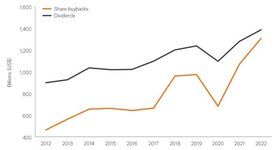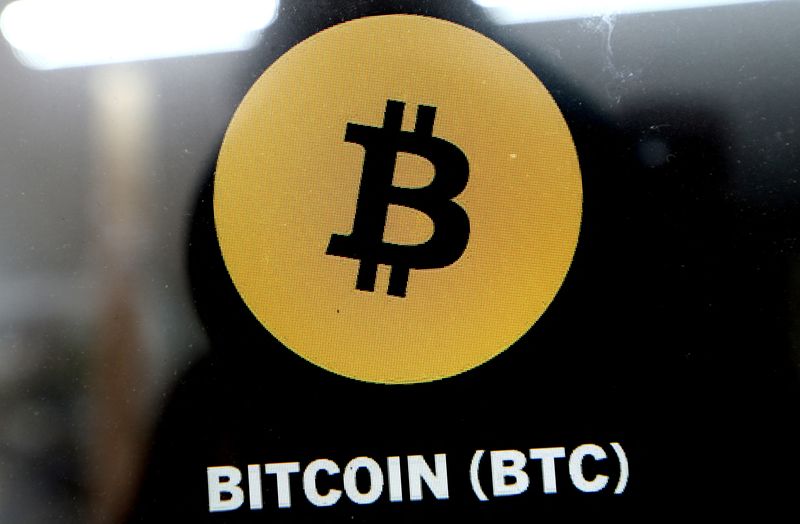A corporation buying Bitcoin is literally the executive management saying, "We have no idea what to do with this extra money so we're just going to YOLO it on Bitcoin." At which point, the shareholders will say, "Uhh, well, if you don't know what to do with the money, you should be putting in our pockets, given that you have a fiduciary duty to us as shareholders/owners." Once Saylor's scheme inevitably blows up (and it will), not only will you never see any major corporations touching Bitcoin, you will probably see legislation prohibiting them from buying it.
I get where you are coming from but its not that black and white. Certain companies such as Apple and Berkshire Hathaway have huge excess cash piles.
Holding excess cash and not holding holding excess cash both have there advantages and disadvantages.
In theory you can return excess cash to shareholders via dividends or share buybacks but there are multiple problems with this.
Firstly there is the issue of double taxation with dividends. Now only a few countries such as Australia, New Zealand and Malta have a full dividend imputation system (and a few more countries have partial dividend imputation systems). So straight off the bat reinvested earnings can compound tax free (albeit the earnings generated from the reinvested earnings are taxable but its still much less tax overall) until you sell your investment (capital gains tax) whereas dividends can be double taxed.
Secondly there is the problem of the unpredictability of capital markets. Often when companies return excess cash via dividends or buybacks then later in the future when they need cash to survive a recession or to make an acquisition, etc they have to do an equity raising because they no longer have spare cash, and at that time capital markets might be depressed meaning their stock price is low and their cost of capital is high making a share issuance highly dilutive if there is even appetite for a share issuance. We saw this during the global financial crises of 2008 and 2009 where many corporations issued huge amounts of shares at rock bottom prices and crushed their earnings per share and intrinsic value per share. That was a permanent destruction of capital. So the idea of return excess cash to shareholders and you can go back to the capital markets later and raise money if you need it doesn't always work out so neatly in practice. I can give many examples of this if necessary.
Although share buybacks avoid the problem of double taxation that dividends have share buybacks have their own issues.
Share buybacks only make sense when the shares are bought back at sensible prices otherwise its a destruction of capital to buy back overvalued shares. Academic analysis of share buybacks often shows that corporations have terrible timing in regards to share buybacks, they buy back the most amount of shares when stock prices are high and they buy back the least amount of shares when stock prices are low.
There are multiple reasons for this. One is that corporations tend to buy back the most shares when earnings/cash flows are strong (returning surplus cash to and financing costs are low (many corporations buy back shares with borrowed money). These conditions tend to occur when the economy and stock market are booming and stock prices are high. You can see from the figures that corporations bought back the lowest amount of shares in 2008 and 2009 and then share buybacks steadily increased over many years in line with the stock market boom. This is the opposite of what corporations should be doing buying back shares when the share price is low and issuing shares when the share price is high. Henry Singleton from Teledyne Corporation was the master at this game.
So you can see for example in 2005, 2006, 2007 when stock prices were high corporations bought back a lot of shares then in 2008 and 2009 share buybacks were at very low levels and in fact many corporations issued shares to repair their balance sheets to survive the downturn and thus in 2008 and 2009 total share count on a net basis actually increased for corporations! Thus the same corporations bought back stock at all time highs then a few years later issued shares after the share prices tanked! Talk about dumb management! Unfortunately most corporations are run by monkeys.

Here is a more recent chart. Again you can see that in 2020 when their was a downturn and shares were cheaper companies actually bought back less shares. The opposite of what common sense dictates companies should be doing.

Warren Buffet has written a lot about the topic of share buybacks and how most companies execute them very badly.
The other issue with share buybacks comes back to incentive caused bias and agency costs. Companies that are run by owner operators tend to be much wiser with share buybacks because their own money is on the line. Whereas corporations run by professional/hired management tend to execute buybacks much worse because they have different incentives. Many executives have stock options that vest based on metrics such as share price increases, earnings per share growth and return on equity. These are all metrics which stock buybacks will increase, so its in their own self interest to buyback shares even when its detrimental to shareholders (when the share price is above its intrinsic value). And the compensation arrangement is asymmetric, if the company does badly or goes bankrupt the executives don't lose money they simply get paid less or don't get a bonus, so the downside is very limited for them. And if the company goes down they just get a job somewhere else.
The idea of "efficient" balance sheets started to gain traction with the takeover boom of the 1980s where companies with "lazy" balance sheets got taken over corporate raiders, private equity etc and the excess capital was stripped out. Since then it has remained fashionable for companies to have "efficient" balance sheets. Also over time major corporations have become less capital intensive and thus have less need for capital hence the need for less retained earnings.
You can see there was an article by Benjamin Graham during the great depression complaining that corporations had too much spare cash and should return some of it to shareholders.
Given all of the above that I wrote in my post I would argue it makes sense for many companies to have a war chest of excess capital to ride out a downturn without issuing shares and to buy back shares or make acquisitions when the stock market is depressed. Companies should behave in a counter-cyclical manner to achieve maximum returns. Now given that is the case corporations that have large piles of cash sitting for many years on their balance sheet such as Berkshire Hathaway, Apple etc that cash loses value to inflation.
Given that many companies will likely not need all of the cash in one hit is it worthwhile for them to consider safe-guarding a portion of that cash from inflation? If yes how to do so?
One option which used to be popular with companies many decades ago but since fell out of favour is owning their own real estate. For example instead of renting the head office building you are using own it, instead of the land the factory is on own it, instead of leasing your retail shops own the premises, etc. If you have excess cash this can absorb some of the cash and give you stability with an asset that you use and protect from inflationary rent increases while simultaneously generating a higher return on capital than cash. Then if you have even more cash that can be extended to owning/land banking vacant land which you might have uses for in the future.
Another option for excess cash is vertical integration companies can buy some of their suppliers to vertically integrate and have more control over the supply chain. Again this used to be popular but fell out of favour during the era of "efficient" balance sheets.
Another option is having a poriton of excess cash stored in phsical commodities such as Gold, Silver, Platinum, Palaldium, Copper, Cocoa beans, etc). Holding commodities can especially be useful for companies which use certain commodities in their production process. For example if you are a semi-conductor company and use gold or silver or copper to manufacture your semi-conductors, if you have excess cash why not stockpile the commodity instead of continually buying it from the market at spot. You secure supply and hedge yourself from inflation and find a parking place for excess capital all at the same time. If you are a company such as Nestle you can store cocoa beans (although not too much as you don't want it to expire). If you are a trucking company with excess cash you can store petrol/oil, etc.
Companies can hold a percentage of their cash reserves in Gold.
And lastly companies can consider storing a portion of excess cash in Bitcoin if they have a massive surplus of cash.

www.lynalden.com






